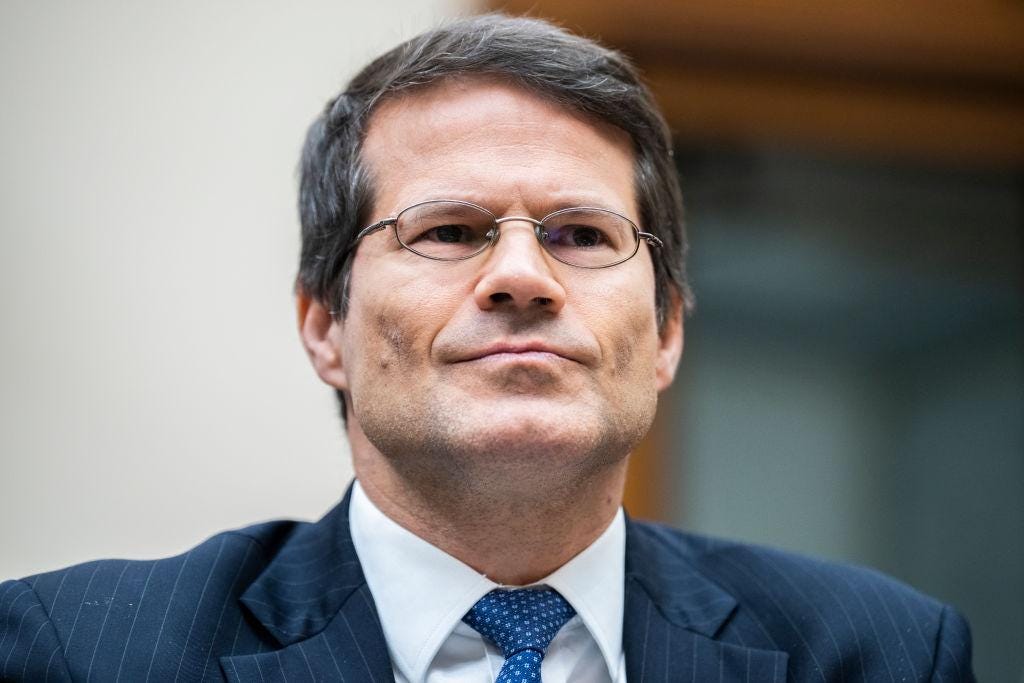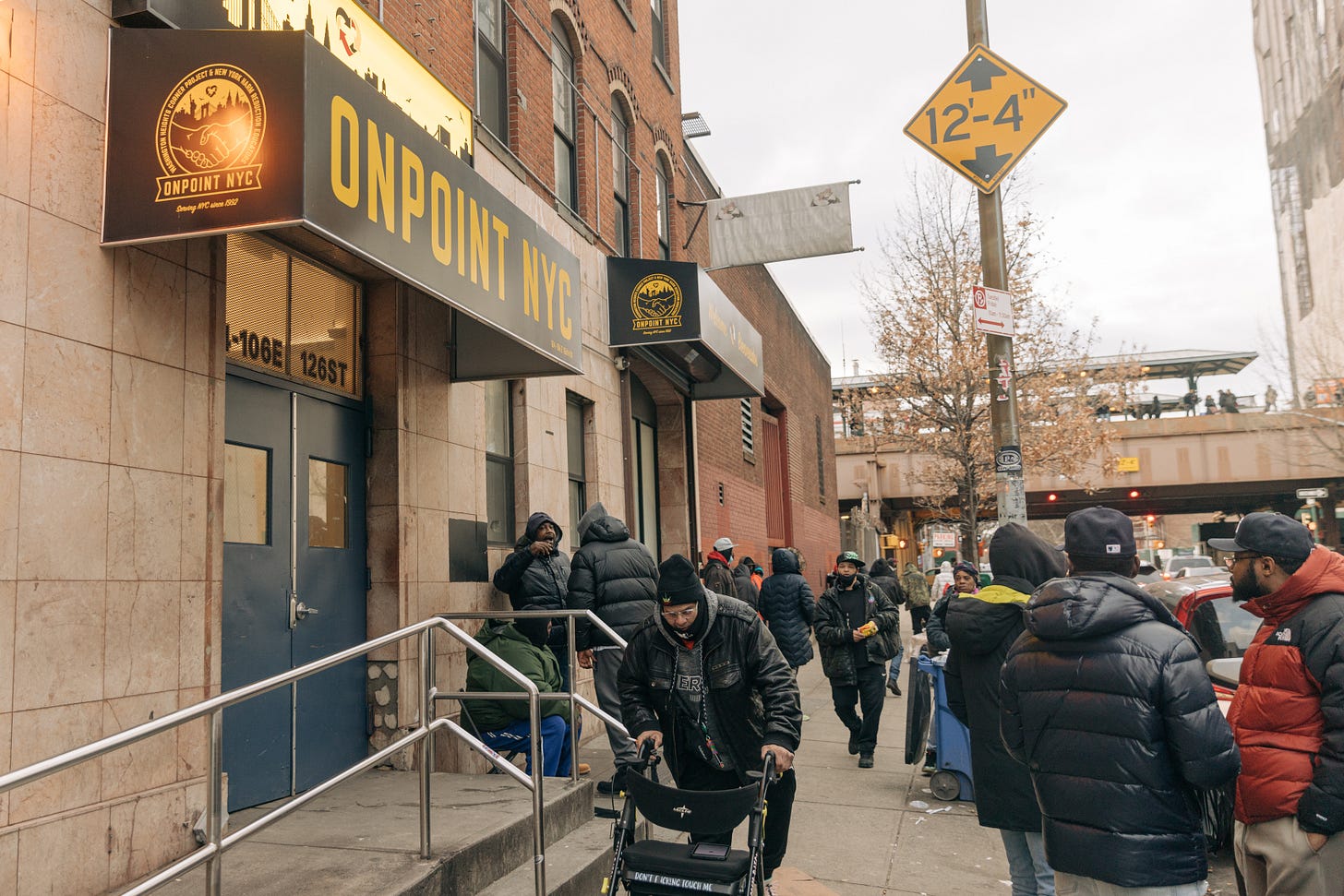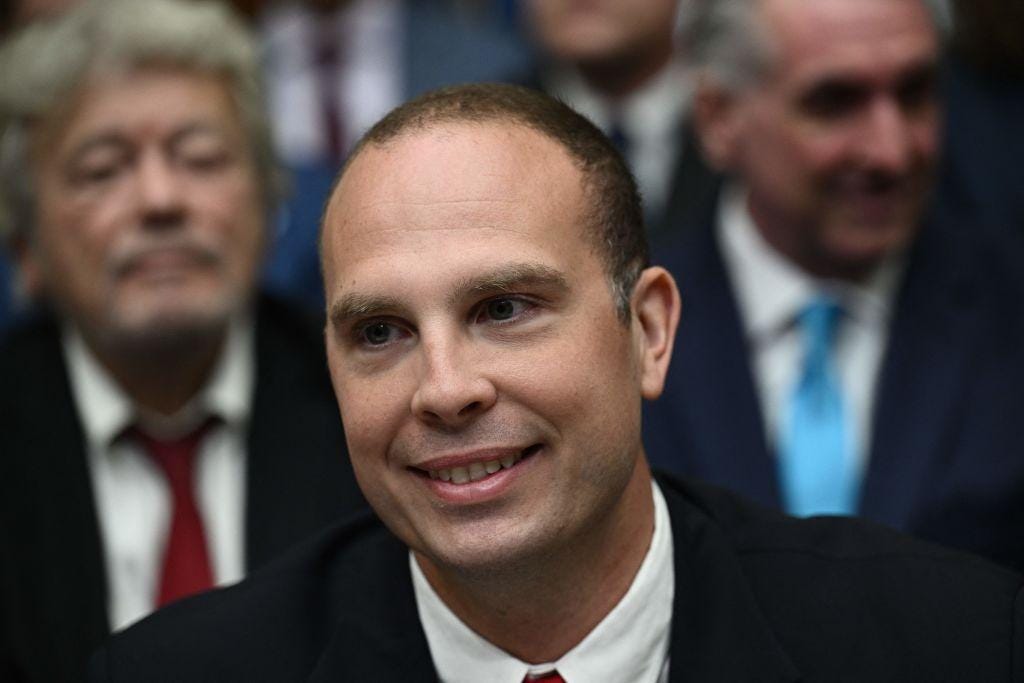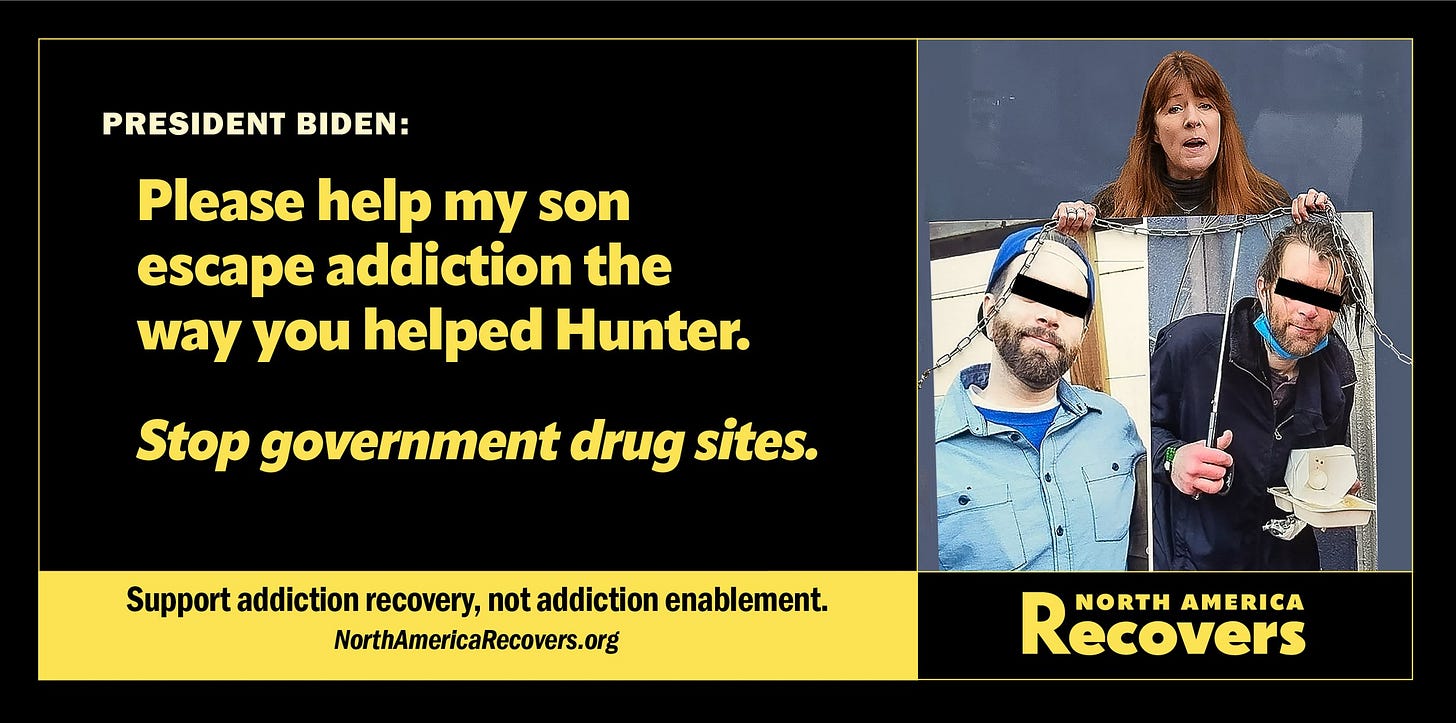Free Speech To The Supreme Court — And Beyond!
Dems Turn On Drug Dens :: Why We Trust Vets Who Recover From PTSD :: Race Grifters On The Left And Right :: A Terrifying Picture Of America As China
Historic Missouri v. Biden Censorship Lawsuit Likely Headed To Supreme Court

Yesterday the Fifth Circuit court heard oral arguments in the Missouri v. Biden case, and the judges did not hold back. One judge suggested the government “strongarms” social media companies and that their meetings had included “veiled and not-so-veiled threats.”
Another judge described the exchange between the Biden administration and tech companies as the government saying, “Jump!” and the companies responding, “How high?”
“That’s a really nice social media company you got there. It’d be a shame if something happened to it,” the judge said, describing the government’s coercive tactics.
Attorney John Sauer, representing Louisiana, masterfully argued that the government had repeatedly violated the First Amendment. He pointed to specific evidence of coercion in the Facebook Files.
“You have a really interesting snapshot into what Facebook C-suite is saying,” Sauer explained. “They're emailing Mark Zuckerberg and Sheryl Sandberg and saying things like… ‘Why were we taking out speech about the origins of covid and the lab leak theory?’” The response, Sauer said, was, “Well, we shouldn’t have done it, but we're under pressure from the administration.”
He also cited an email from Nick Clegg, Facebook President of Global Affairs, that pointed to “bigger fish to fry with the Administration - data flows, etc.”
On Monday, Public reported that these “data flows” referred to leverage the Biden administration had over the company; Facebook needed the White House to negotiate a deal with the European Union. Only through this deal could Facebook maintain access to user data that is crucial for its $1.2 billion annual European business.
But Sauer also made it clear that coercion was not the only basis on which the court could rule against the Biden administration. Joint activity between the White House and social media platforms would also be unconstitutional.
Sauer compared what the government had done to book burning. “Imagine a scenario where senior White House staffers contact book publishers… and tell them, ‘We want to have a book burning program, and we want to help you implement this program… We want to identify for you the books that we want burned, and by the way, the books that we want burned are the books that criticize the administration and its policies.”
Daniel Tenny, the attorney for the Department of Justice, was left nitpicking and misrepresenting the record. In one instance, he denied that Anthony Fauci and Francis Collins had hatched a plan to orchestrate a “takedown” of the Great Barrington Declaration. Why? Because, Tenny said, according to their emails, they actually planned a takedown of “the premises of the Great Barrington Declaration.”
Tenny also stated that social media companies had not removed any true content. From the case’s discovery as well as the Facebook Files we know that is far from true. Facebook, against internal research and advice, did remove “often-true content” that might discourage people from getting vaccinated. Facebook’s own emails clearly suggest that the company only did this due to pressure from figures within the Biden Administration.
Tenny also claimed that when Rob Flaherty, the White House director of Digital Strategy, dropped the F-bomb in an exchange with Facebook it was not about content moderation. In fact, it was precisely about content moderation and occurred during a conversation about how Instagram was throttling Biden’s account. Ironically, the account couldn’t gain followers because Meta’s algorithm had determined that it was spreading vaccine misinformation.
Later, Sauer demolished an earthquake hypothetical that Tenny had introduced to justify state-sponsored censorship. “You can say this earthquake-related speech that's disinformation is false, it's wrong,” Sauer said. “The government can say it's bad, but the government can't say, ‘Social media platforms, you need to take it down.’ Just like a government can't stand at the podium and say, ‘Barnes and Noble, you need to burn the bad books, burn the Communist books, whatever it is.’ They can't say take down speech on the basis of content.”
Based on this hearing, the plaintiffs in Missouri v. Biden may have a strong chance of winning. Biden’s DOJ simply had no valid arguments to present. The evidence is clear: the administration brazenly engaged in an unlawful censorship campaign and instrumentalized private companies to do its bidding. This total disregard for fundamental civil liberties will be a stain on the Democratic Party for years to come.
The Supreme Court will be the supreme victory in the US, but our free speech work won’t be done after we win there. No nation enjoys free speech protections like ours. And so, after we win in the US, you can expect to see us helping our allies abroad achieve similar protections from government strongarming, aka censorship, in their own nations.
— AG
Free Press Hosts Sex Revolution Debate: September 13
Did the sexual revolution liberate women to have it all — work, love, and a family? Or did it overpromise and underdeliver, leaving more and more women childless and unhappy?
Friend of Public, Bari Weiss, the founder of The Free Press, is hosting a debate between four of the biggest feminist and post-feminist thinkers in the world: Grimes and Sarah Haider for the revolution side vs. Anna Khachiyan and Louise Perry for the counter-revolution.
At the Ace Hotel Theater in Los Angeles at 7pm on September 13. Buy your ticket now!
— MS
Dems Turn On Drug Sites

The OnPoint supervised drug consumption site in East Harlem, New York, operates as openly and unabashedly as the bodega next door. Addicts file through its front door, bringing their drugs of choice with them. Inside, OnPoint provides them with the private spaces, sterilized equipment, and human oversight they need to get high comfortably and — at least in the view of the site’s supporters — safely. On any given day, you can find NYPD officers standing around on the sidewalk in front of the building, taking no interest in what’s happening inside.
But contrary to appearances, OnPoint, which operates two drug use sites in New York, operates in brazen violation of the law. Supervised consumption sites plainly fall under the definition of “drug-involved premises” under a 1986 federal law informally known as the “Crack House Statute,” which then-Senator Joe Biden co-sponsored. OnPoint has been insulated from enforcement only by the support it has succeeded in currying from progressive politicians. Even Mayor Eric Adams, a moderate Democrat, and a former cop, openly supports the service and has called for more.
But now, US Attorney Damian Williams has announced a crackdown on the two sites. “My office is prepared to exercise all options — including enforcement — if this situation does not change in short order,” he told the New York Times.
Harlem residents have complained about the site for years, largely to no avail. Even though drug addiction plagues neighborhoods throughout New York City, the Greater Harlem Coalition has pointed out that treatment services are concentrated in this single, low-income, majority-non-white neighborhood, turning it into a magnet for drug addicts. For example, the Times article on the US Attorney’s announcement profiles a user “who travels almost every day to East Harlem from Brooklyn so he can inject his drugs under supervision.” The influx of drug users has exacerbated the blight that already plagued the area: dirty needles littering the sidewalks, human feces in playgrounds, open drug use in plain view of school children. Government policies, the Coalition says, have turned Harlem into a sacrifice zone.
On the other side of the country in San Francisco, residents have seen the same thing in that city’s sacrifice zone, the Tenderloin. Last year, the city’s public health department quietly opened up its own illegal supervised consumption site, though, unlike OnPoint with its sterile equipment and private cubicles, this one consisted of nothing more than a fenced-off courtyard and some staff members with Narcan and the city tried to prevent the public from finding out about it.
Sites like OnPoint and the Tenderloin Center are the cutting edge of the “harm reduction” movement in the United States, which seeks to combat the addiction crisis on American streets not by restricting the supply of dangerous drugs and pushing addicts into recovery but by managing the risks of drug abuse by providing users with sterile narcotics paraphernalia, opioid overdose reversal medication, and controlled environments in which to use.
The movement claims to save lives, but the evidence, which I’ve reported on in-depth, is questionable at best. The approach largely amounts to lowering our standards for people in the throes of addiction: instead of insisting on rescuing addicts from their disease, we’re asked to make them comfortable and manage their decline. It’s palliative care for a non-terminal condition.
We should expect more. We should expect of drug users the basic personal responsibility that is an inextricable part of human dignity, even if we must compel them to accept it. We should expect our political leaders to ensure minimal public safety, hygiene, and moral decency in our cities and not shame us for wanting it. We should expect the government to treat our poorest neighborhoods with the same respect as our wealthiest and not to turn them into containment zones for the kind of activity the affluent would never tolerate anywhere near their families.
Michael and I and two other journalists were the first to expose the San Francisco site and draw attention to the wider issue. Following that political embarrassment, Governor Gavin Newsom vetoed a bill to build more such sites throughout California. We co-founded in January of this year North America Recovers, a coalition of mothers seeking to save their homeless children from imminent drug deaths, neighbor activists from Harlem to Seattle angry at the chaos brought by the drug sites, and recovering addicts who understand that intervention, including by the police if need be, is necessary to save lives.
As our first campaign, North America Recovers committed to halting the legalization and spread of state-sanctioned drug dens and, in particular, pledged to shut down OnPoint in Harlem. It appears our warnings of the dangers of such sites, outside of a recovery-based addiction care system like they have in the Netherlands, has been heard by the Department of Justice, the Biden White House, or any high-ranking Democratic Party strategist capable of imaging a political attack ad on the issue. Indeed, some of the mothers in the NAR coalition put up just such an ad in San Francisco last year and in Washington DC last spring. Maybe someone in the White House was paying attention.
The US Attorney for Manhattan called the situation in Harlem “unacceptable.” He’s absolutely right. We should not accept it, and we shouldn’t let any politician, activist, or media pundit gaslight us into thinking we should.
—LW
Shellenberger To Dublin For Free Speech: September 16
Ireland’s proposed hate censorship bill is shaping up to be the most controversial legislative proposal in recent Irish memory. Nearly three-quarters of the Irish public are against it, yet the Irish Senate may pass it into law as early as September.
They won’t pass it without a fight. I’m happy to announce that I’ll join Ireland’s leading free speech advocates on stage in Dublin on Saturday, September 16.
The event is co-sponsored by two friends of Public: Free Speech Ireland and Gript, a scrappy news media start-up. Buy your ticket now!
— MS
Deep Fake of the Week
Why We Trust Vets Who Recover From PTSD










